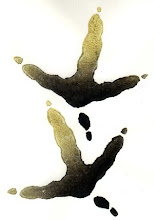skip to main |
skip to sidebar
How to hold your breath for long periods of time
from
Wiki How:
Things You'll Need
* A stopwatch
* A pencil
* A piece of paper for recording times
* A buddy, especially if you're underwater, or submerged
* A suitable body of water if you're going to hold your breath underwater
Steps
1. Do exercises to increase your lung capacity. While there is no way to increase the size of your lungs, there are many ways to increase the amount of air taken in by your lungs, and the efficiency with which they capture oxygen.
2. Lose weight. Any excess baggage reduces your body's efficiency in using oxygen.[1]
3. Quit smoking This will considerably increase your lungs' ability to release carbon dioxide and absorb oxygen.
4. Before holding your breath, inhale and exhale slowly from deep within your diaphragm. By doing this, you're ridding your lungs of low-quality air.[2] Spend 5 seconds breathing in and 5 seconds breathing out; do this for two minutes, and be sure that when you exhale, you push out every last "drop" of air.[3]
5. Take a massive gulp of air and hold it. Don't breathe in so much that you're about to pop; fill your lung capacity to 80-85% so that you still have room to relax.[4]
* Always do this with a partner watching, since you can lose consciousness without warning.
* Don't hold air in your cheeks. This method is meant for an air reserve, but you have to "let go" of the air in your lungs if you want to use the air in your cheeks, and exhaling air in your lungs usually gets rid of the reserve in your cheeks. In other words, it's not easy to switch out the air in your lungs and the air in your cheeks without letting both escape. But it can be done - see link on "Circular Breathing" below.
6. Splash cold water on your face. It's been observed that putting a person's face in contact with cold water triggers bradycardia, or the slowing of the heart rate, which is the first phase of the mammalian diving reflex.[5] You don't need to actually put your entire head underwater, though. You can splash some cold water on your face right before you hold your breath, or try using a cold, wet washcloth (don't use an ice pack, though; the same study suggests that the shock of something too cold triggers other reflexes). Just make sure it's cold enough (21 °C or 70 °F) and the rest of your body is in a relaxed position.
7. Relax every muscle in your body. Meditate so that you can lower your heart rate. Your body will consume less oxygen that way.[6] By closing your eyes, feeling, and focusing on slowing your heart beat, it is possible to lower your heart rate significantly and increase the time you are able to hold your breath for. Concentrate on something that's relaxing to you. When you can't concentrate anymore, distract yourself by doing something with your hands, like counting to 99 with your fingers.[7]
8. Exhale slowly. When you can't hold your breath anymore, try to avoid exhaling all the air in your lungs in a mad rush. First, exhale about 20% of your air, then inhale again so that oxygen gets to your most critical areas faster. Then you can exhale and inhale completely.
9. Repeat these steps 3-4 times per session. It is not recommended to do this any more, as it could damage your lungs and body. Try one session in the morning and one session at night if you wish. Keep practicing and before you know it, you will be able to hold your breath for several minutes.









2 comments:
Nice. A perfectly dry post. Awesome stuff. Nice quote in the sidebar too.
I am in South Carolina at conf, so will miss you shooting at the club.
uhm, yeah, well. sorry. busy. nice to see Jefe on the blog 'cause he sure is AWOL in person...
story isn't worth the buildup, but you knew that. the dogges worked pretty well. the birds couldn't fly. at all. which was sad. especially for the pointy dogge--how to resolve?
but they tasted pretty good pan seared pn garlic toast with lil' chopped mushrooms and (just a little, mind you) Gruyere cheese.
Post a Comment